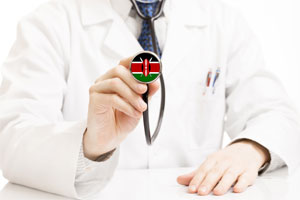The Kenyan Administration has begun inspections of health facilities as they prepare to deploy their universal healthcare program. Governor Jackson Mandago spoke yesterday said that the inspection would be the necessary first step before they can proceed with their Universal Healthcare objective. 121 Healthcare Centers and staff will be inspected as part of the process.
“The assessment will assist us even as we prepare to roll out our universal healthcare. We have to make sure we have a full report on maternal and child care so that we can optimise human resources,” said Mandago. The governor went on to reveal that the administration has sought the assistance of 50 medical experts from various institutions from around the nation to conduct these inspections.
The specialists will come from several top Medical establishments such as Moi University, Maseno, Kenya Medical Training College and Moi teaching and Referral Hospital and others.
“We hope to be among the first counties to successfully implement universal healthcare. At the end of the audit, I will be able to share it with my fellow governors so that they can also adopt it. We want to be leaders in championing the Government’s Big Four agenda,” said Mandago.
Evelyne Rotich, County Health Minister said that a comprehensive inspection will be overseen by the government. The objective of the inspection will be to find gaps in the Kenyan Healthcare system and plug them. They are ready to assess and give us a report that we will work on. At the moment, as a department we have received blessings from the governor and we are looking forward to know the status of our facilities,” said Rotich. Dr Faith Yego, the team leader, said they would be using an assessment tool that has been developed and validated through facilitation from the Health ministry and World Bank.



